Ever since we started our fieldwork, we have received many offers from people who want to come and help us. We really appreciate that, but so far we have only rarely accepted volunteers. The main reason is the unpredictable weather conditions, which may lead to cancellation or rescheduling of fieldwork on very short notice. This would not be much fun if you have flown in from God-knows-where to volunteer. We are also somewhat wary about taking people we do not know into the high mountains. It can be rough out there, and some people may not be able to handle it, even if they sound genuinely enthusiastic before we head out. So we have tended to stick with people we know.
However, it may be that we have an opening for volunteers this year. We have a large site that is in need of a systematic survey and where a few extra people could really make a difference on the ground. In addition, we have a lower altitude glacier site as a backup, if the weather turns on us. Maybe there are people out there with the right qualifications, who could get the possibility of a hands-on experience of glacial archaeology, and at the same time provide important help to us ?
It is imperative for us that volunteers have a realistic impression of what participating in fieldwork will be like. It may sound like a great adventure, and indeed it often is, but it can also be miserable (like horisontal sleet and no finds). Read here about life in the field and here about being a volunteer .
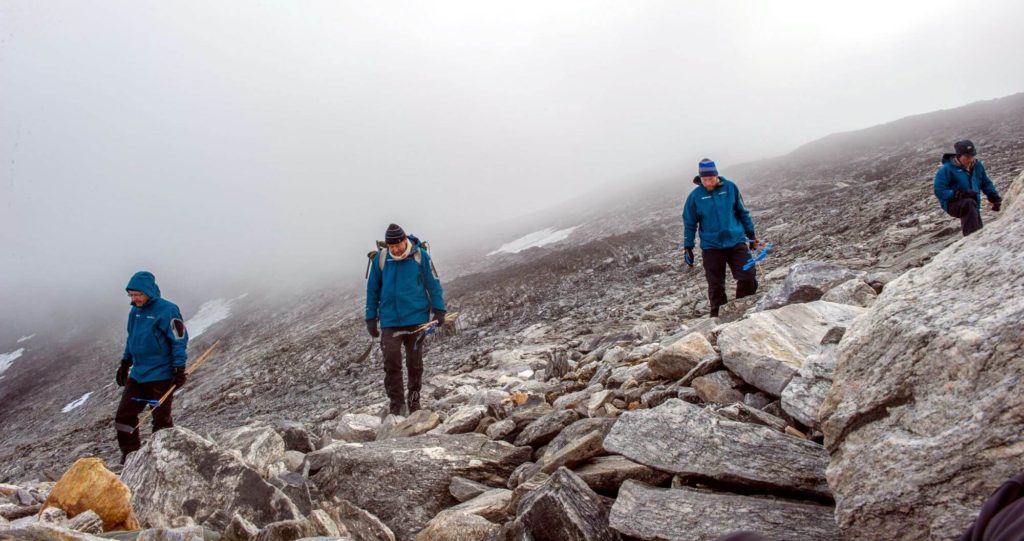
Qualifications
What kind of qualifications are needed to be a volunteer with our Secrets of the Ice team?
First and foremost, you must be an outdoors person, used to being outside in what can be rough conditions, and used to camping, wet clothing and cold.
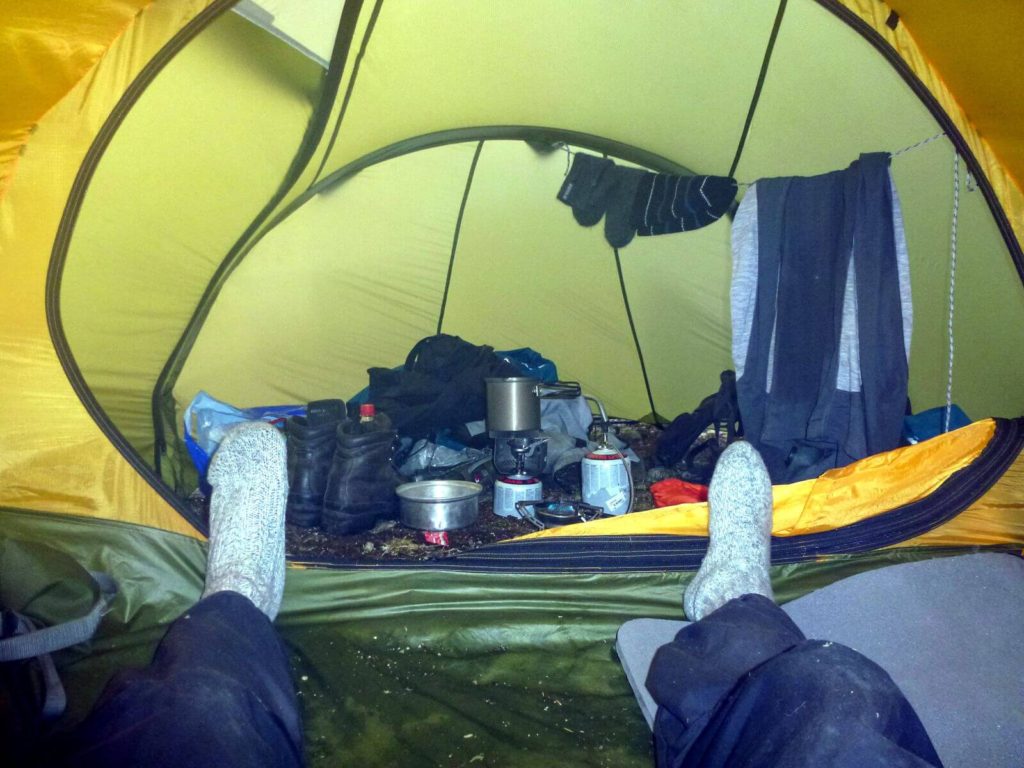
You must be physically fit. As a minimum you must be able to carry a 20 kg backpack up 1000 height-meters. On certain sites, we use helicopters or packhorses for transport, but sometimes it is no-fly weather and/or packhorses are not available. We need to be prepared to hike up to any site. You will need to able to carry your personal stuff, plus your share of the equipment and food.
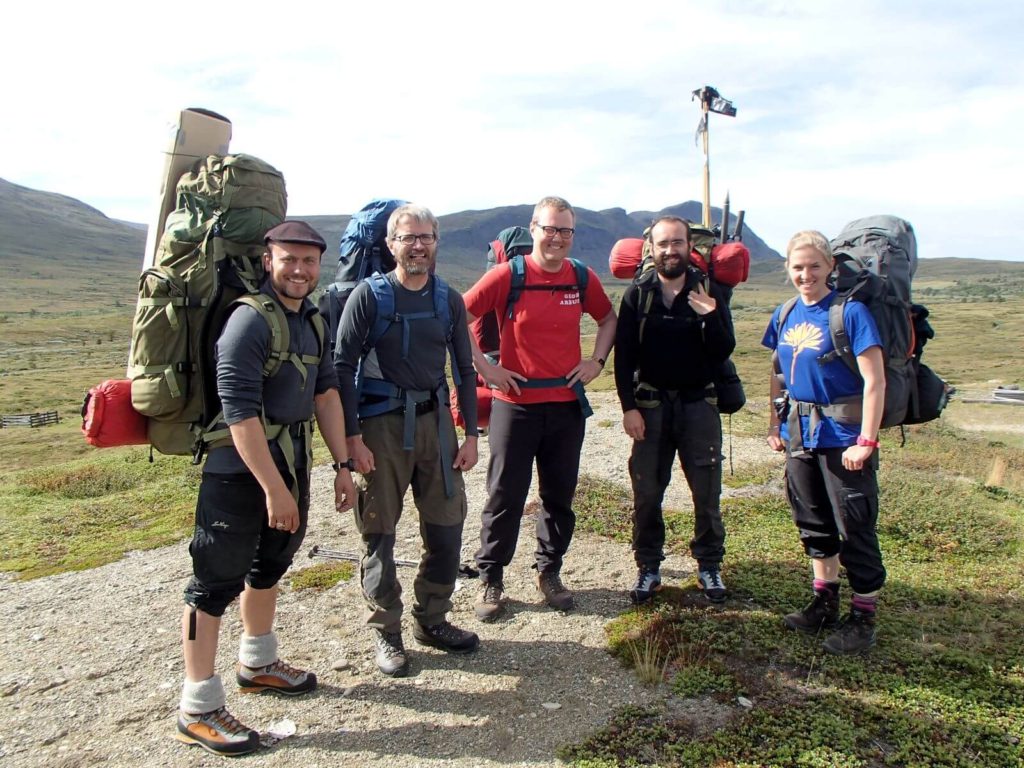
You must have proper clothing and hiking boots, a winter sleeping bag, plates/cutlery and a 60+ liters backpack. We provide tents, sleeping mats, food and cooking equipment.
You must speak a Scandinavian language and/or English.
You must have good social skills, even when tired and cold.
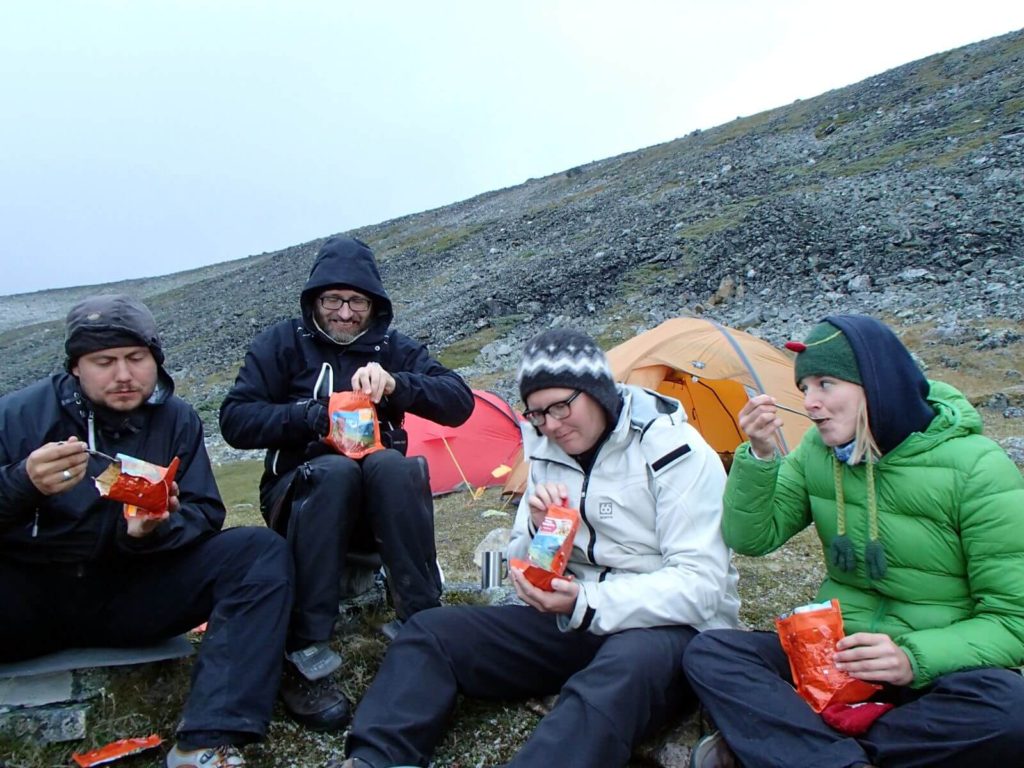
You cannot be a picky eater. We eat what we have, even if it is a Lendbreen Bacalao. You cannot go without food in the high mountains, just because you do not like what is being served.
You would not need to be an archaeologist. The work itself is hard physically, but not difficult. Keeping a high level of concentration, even when tired, is important. Otherwise, you could miss important artefacts or injure yourself by slipping on a stone and fall.
Realities of fieldwork
Fieldwork may be cancelled, relocated or rescheduled at short notice. If you are chosen as a volunteer and fieldwork is cancelled, we will try to provide you with another possibility later.
Being a volunteer is not a holiday. You have to get up at dawn just as everybody else and work the same hours. You also take your turn at cooking etc.
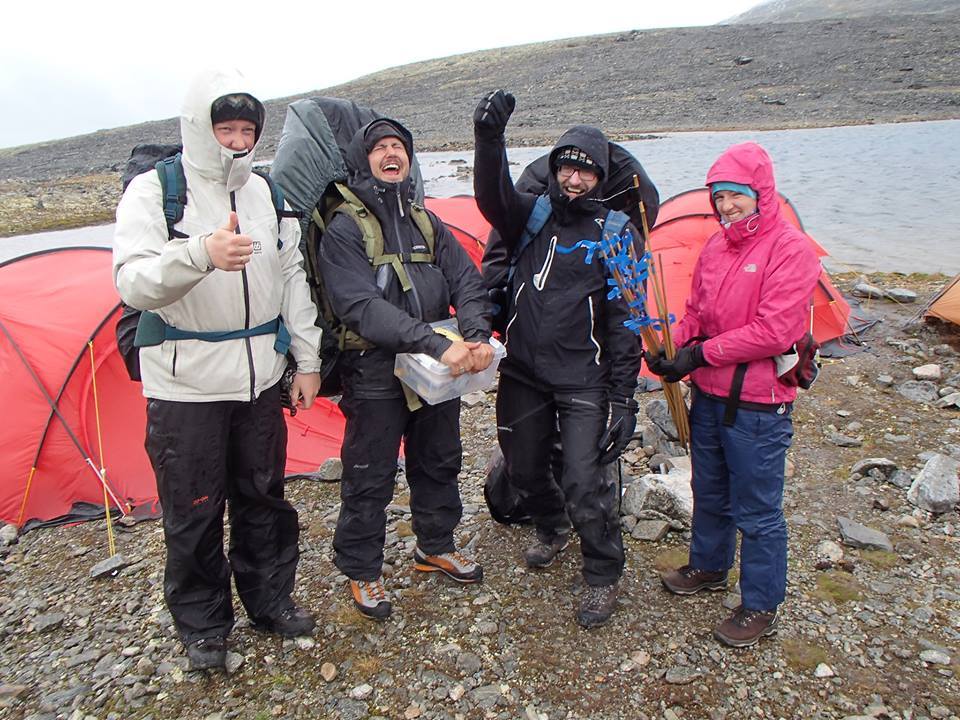
We may not find much (or we could strike the jackpot, who knows). It all depends on the melting conditions, and they develop over the summer and during fieldwork. If we are unlucky, the scenery and the team spirit make up for the lack of finds.
You must have insurance that covers accidents during fieldwork, and provide documentation of this insurance. We have not had any accidents in ten years, so the risk of something serious happening is very small, as long as you stick to our safety rules. Better safe than sorry. No sliding on glaciers!
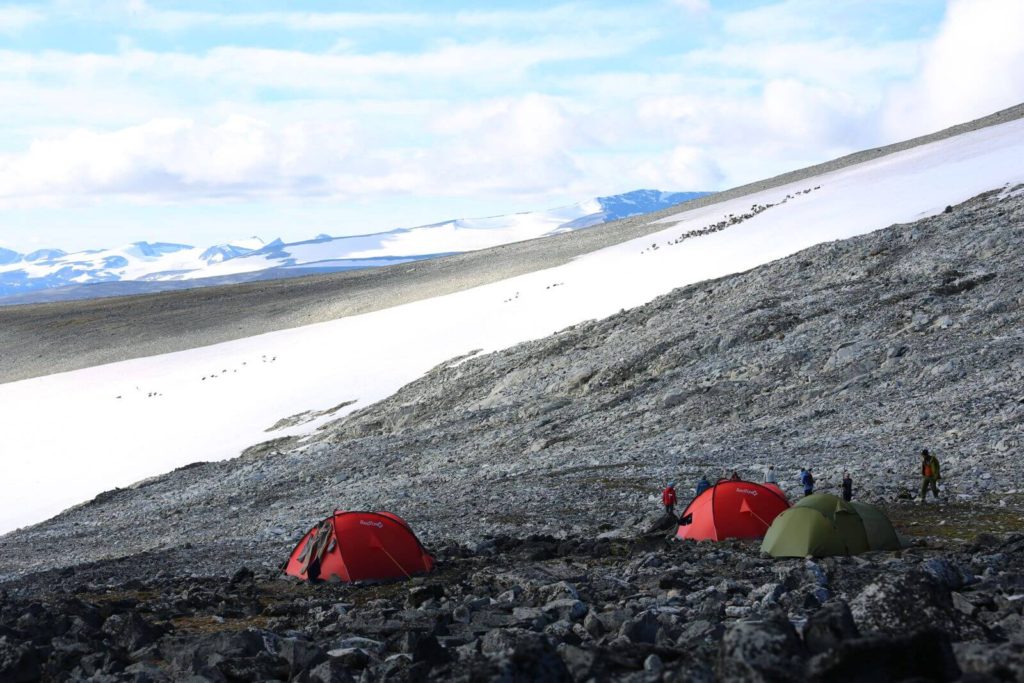
Application and conditions
Do you feel that you meet the required qualifications listed here, and would you like to become a volunteer? In that case, we would like to hear from you.
We require a written application. Send it to brearkeologi@oppland.org. The deadline for applying is Monday 15th of May.
We would especially like to hear what your motivation is, but remember to also include basic information like which country you live in, your age etc. If you have any special skills you think would be useful to the project, please let us know. If you appear like a good candidate, we would like a Skype interview before we make a decision.
We provide covering of costs from our office in Lillehammer, Norway onwards – that is food, transport and a place to sleep. Duration of your participation would normally be around a week. Fieldwork is planned to take place at the end of August, but it depends on the snow conditions.
If you have any questions, feel free to contact us via email or through our Facebook page.
